




Washing towels may seem like a simple task, but choosing the right settings on your washing machine can make a big difference in keeping your towels soft, fluffy, and absorbent. Whether you prefer using fabric softener or not, it is important to know the best washing machine settings for washing towels to ensure they come out clean and fresh every time.
One important setting to consider when washing towels is the water temperature. For most towels, a warm or hot water setting is best as it helps to remove dirt, oil, and bacteria more effectively. However, be sure to check the care label on your towels to ensure that hot water is safe for the fabric. Some towels, especially those made of delicate materials, may require a cooler water temperature to avoid damage.
Another setting to pay attention to is the cycle selection. Generally, a heavy-duty or normal cycle is suitable for washing towels as it provides a thorough clean. Avoid using delicate or quick wash cycles as they may not agitate the towels enough to remove dirt and residue effectively. Additionally, using a high spin speed can help to remove excess moisture from the towels, reducing drying time and preventing musty odours.
Lastly, consider adjusting the detergent and fabric softener usage. While using a detergent formulated for heavy-duty fabrics is recommended, it is important not to overload the machine with too much detergent as it can leave residue on the towels. Fabric softener is a personal preference, but it can help to keep towels soft and fluffy. However, if you prefer not to use fabric softener, adding a cup of white vinegar to the rinse cycle can also help to achieve the same result.
By following these best washing machine settings for washing towels, you can ensure that your towels stay fresh, clean, and long-lasting. Remember to check the care labels on your towels and adjust the settings accordingly to prevent any potential damage or shrinkage. With the right settings, your towels will remain soft and absorbent, providing you with a luxurious bath experience every time.
Best Washing Machine Settings for Washing Towels
When it comes to washing towels, it’s important to choose the right washing machine settings to ensure they are thoroughly cleaned and well-maintained. By selecting the appropriate settings, you can effectively remove dirt, grime, and odors from your towels, leaving them fresh and soft.
1. Water Temperature
Start by setting the water temperature to hot or warm. Hot water helps to kill bacteria, remove allergens, and break down any built-up residue on your towels. However, avoid using hot water if your towels are made of delicate or synthetic fabrics, as this can cause shrinkage or damage.
2. Wash Cycle
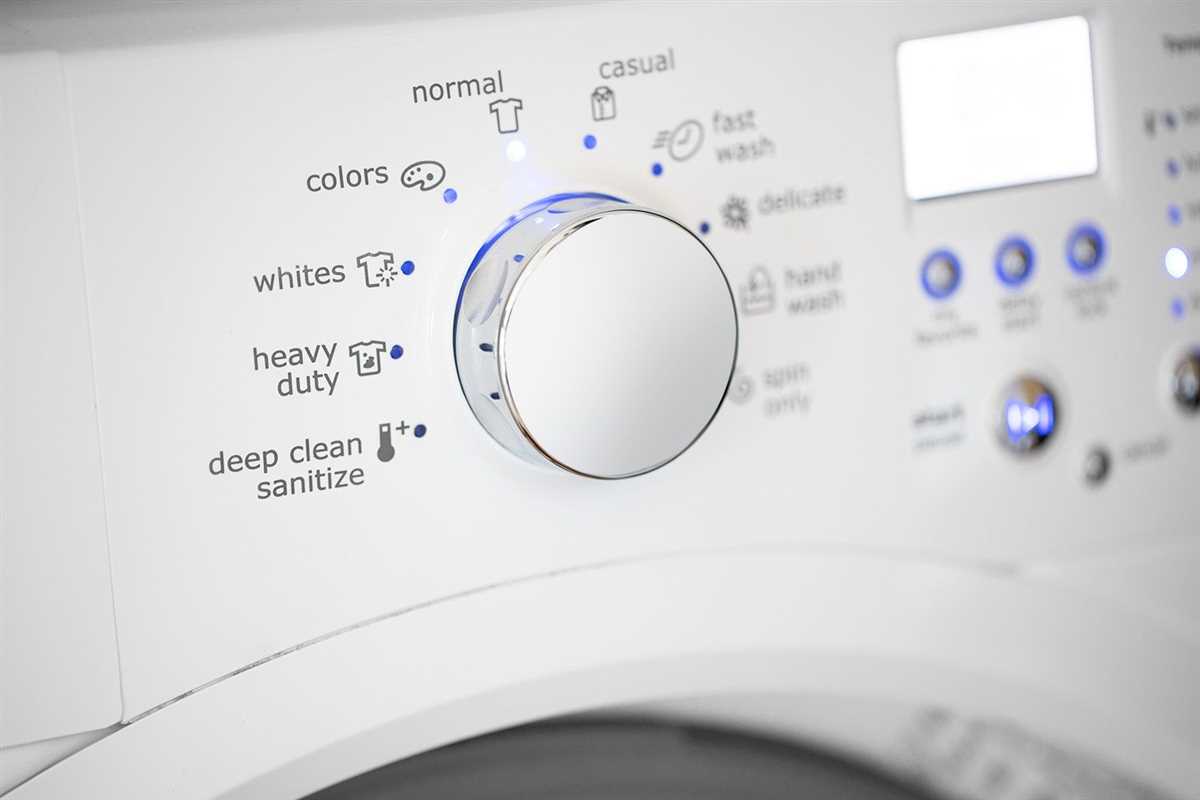
For normal to heavily soiled towels, choose the regular or heavy-duty wash cycle. This cycle provides longer agitation and a higher spin speed to effectively clean and remove stains from your towels. If your towels are lightly soiled, you can opt for the quick wash cycle.
3. Laundry Detergent
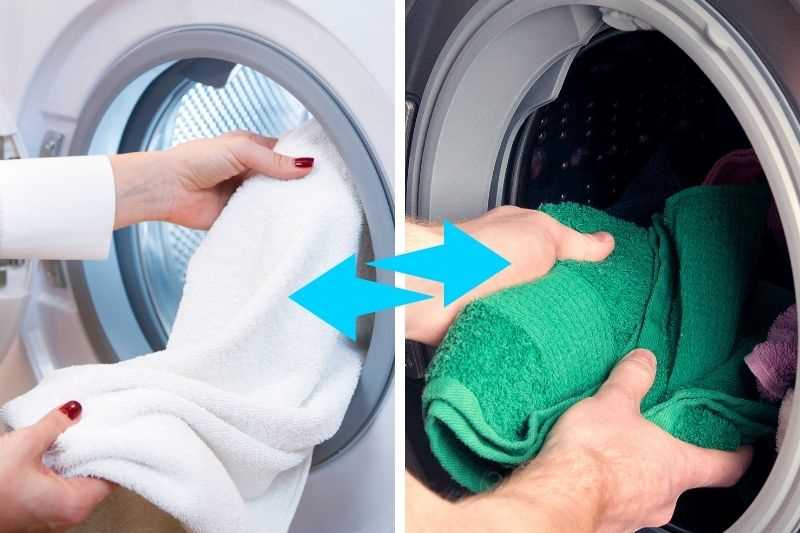
Use a high-quality laundry detergent that is suitable for washing towels. Measure the appropriate amount of detergent according to the manufacturer’s instructions and add it to the detergent dispenser or directly to the drum of the washing machine. Using too much detergent can leave a residue on your towels, while using too little may not effectively remove dirt and odors.
4. Fabric Softener
Consider adding fabric softener to your washing machine if you prefer softer towels. Fabric softener helps to reduce static, smoothen fibers, and impart a pleasant scent to your towels. However, for towels made of highly absorbent materials like microfiber, avoid using fabric softener as it can reduce their absorbency.
5. Extra Rinse Cycle
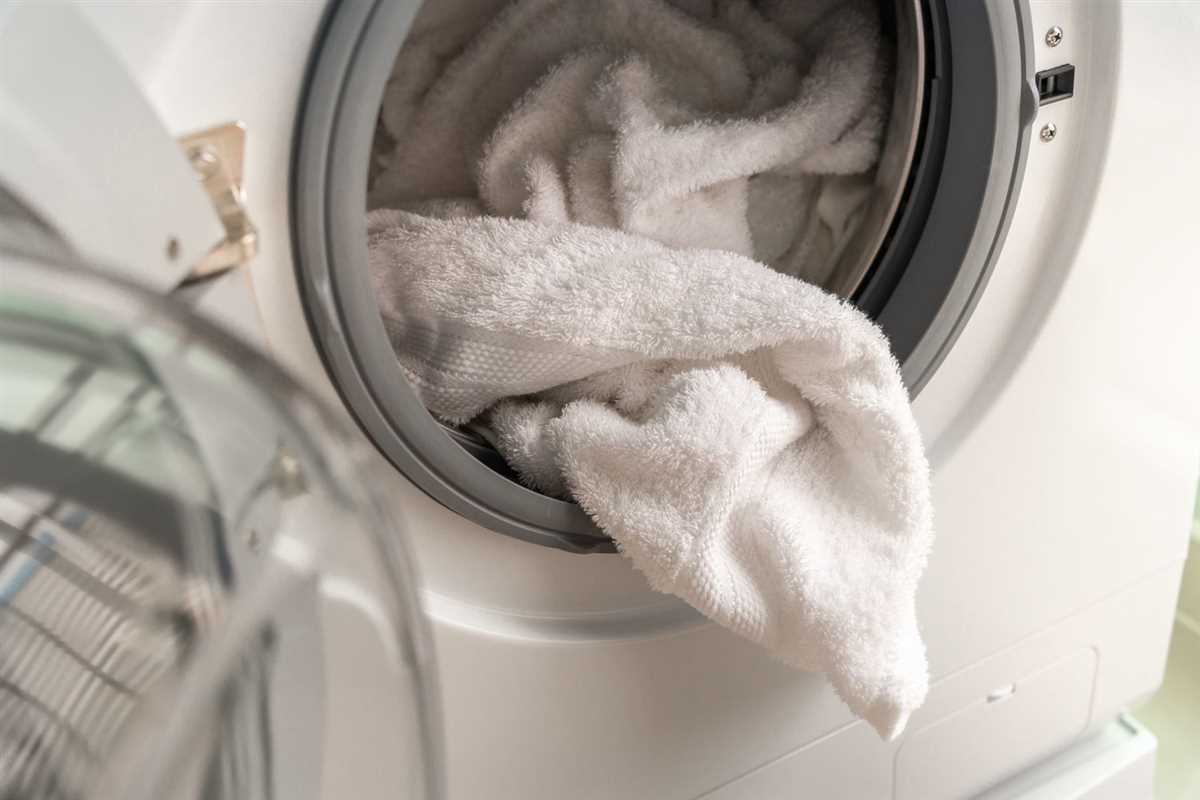
If your washing machine has an extra rinse cycle option, it can be beneficial to use it when washing towels. This helps to ensure that any detergent or fabric softener residue is thoroughly rinsed out, leaving your towels clean and free from any potentially irritating substances.
6. Drying Settings
After washing, tumble dry your towels on a medium to high heat setting or according to the instructions on the care label. This not only helps to remove excess moisture but also fluffs up the fibers, making your towels plush and absorbent. Avoid over-drying, as this can cause your towels to become stiff and rough.
Conclusion
By following these best washing machine settings for washing towels, you can ensure that your towels are effectively cleaned and maintained. Remember to always check the care label on your towels for any specific instructions or recommendations from the manufacturer. With proper care, your towels will stay soft, fresh, and appealing for a longer time.
Choosing the Right Cycle
When washing towels, it is important to choose the right cycle on your washing machine. The right cycle will ensure that your towels are cleaned thoroughly without being damaged. Here are some of the most common cycles to consider:
- Normal cycle: This is the most common and versatile cycle for everyday laundry. It is suitable for most types of towels and can be used for regular cleaning.
- Heavy-duty cycle: If your towels are heavily soiled or stained, the heavy-duty cycle may be more effective. This cycle uses more water and a longer wash time to provide a more thorough clean.
- Delicate cycle: If your towels are made of delicate materials or have decorative elements, such as embroidery or lace, the delicate cycle is the best choice. It uses a gentle agitation and slower spin speed to prevent damage.
- Quick wash cycle: If you need your towels cleaned in a hurry, the quick wash cycle can be a good option. It typically lasts for around 15-30 minutes and is suitable for lightly soiled towels.
Most washing machines also offer additional cycles that are specialized for specific fabrics or purposes. These may include cycles for sports towels, baby towels, or towels with a waterproof coating. Consult your washing machine’s manual for more information on these specialized cycles.
Additionally, consider adjusting the water temperature and spin speed based on the care instructions provided with your towels. Warm water is usually suitable for most towels, but some materials may require cooler or hotter water. Similarly, high spin speeds are generally suitable, but delicate towels may require a slower spin to prevent damage.
| Towel Material | Water Temperature | Spin Speed |
|---|---|---|
| Cotton | Warm | High |
| Microfiber | Cool | Medium |
| Linen | Cool | Low |
| Bamboo | Warm | Medium |
By choosing the right cycle and adjusting the water temperature and spin speed, you can ensure that your towels are cleaned effectively and maintain their quality for longer.
Temperature Settings
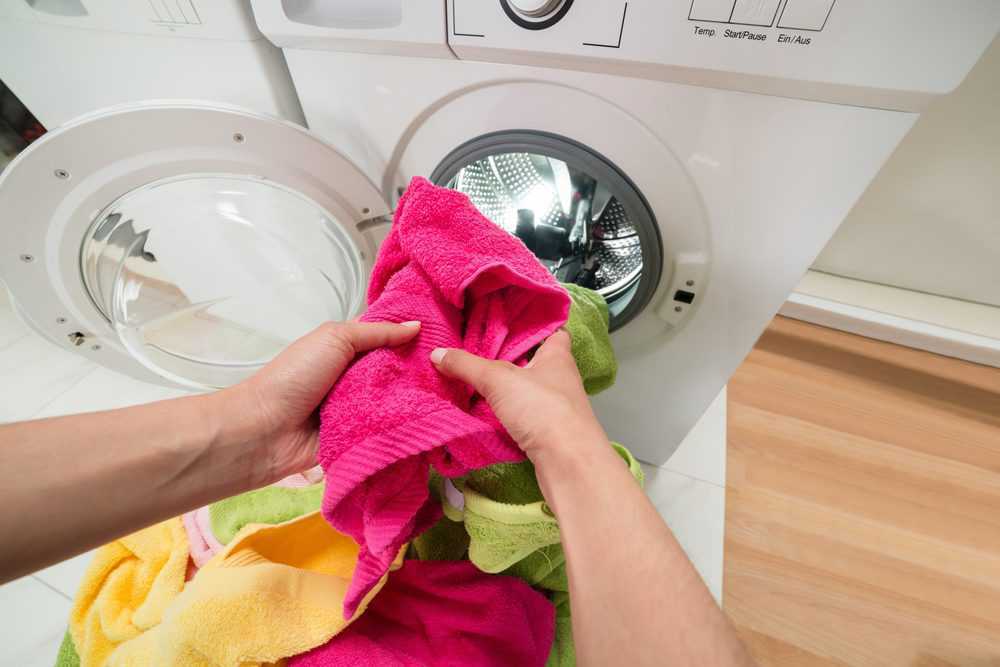
When it comes to washing towels, the temperature settings on your washing machine play an important role in achieving the best results. Here are the recommended temperature settings for washing towels:
Hot Water (140°F/60°C)
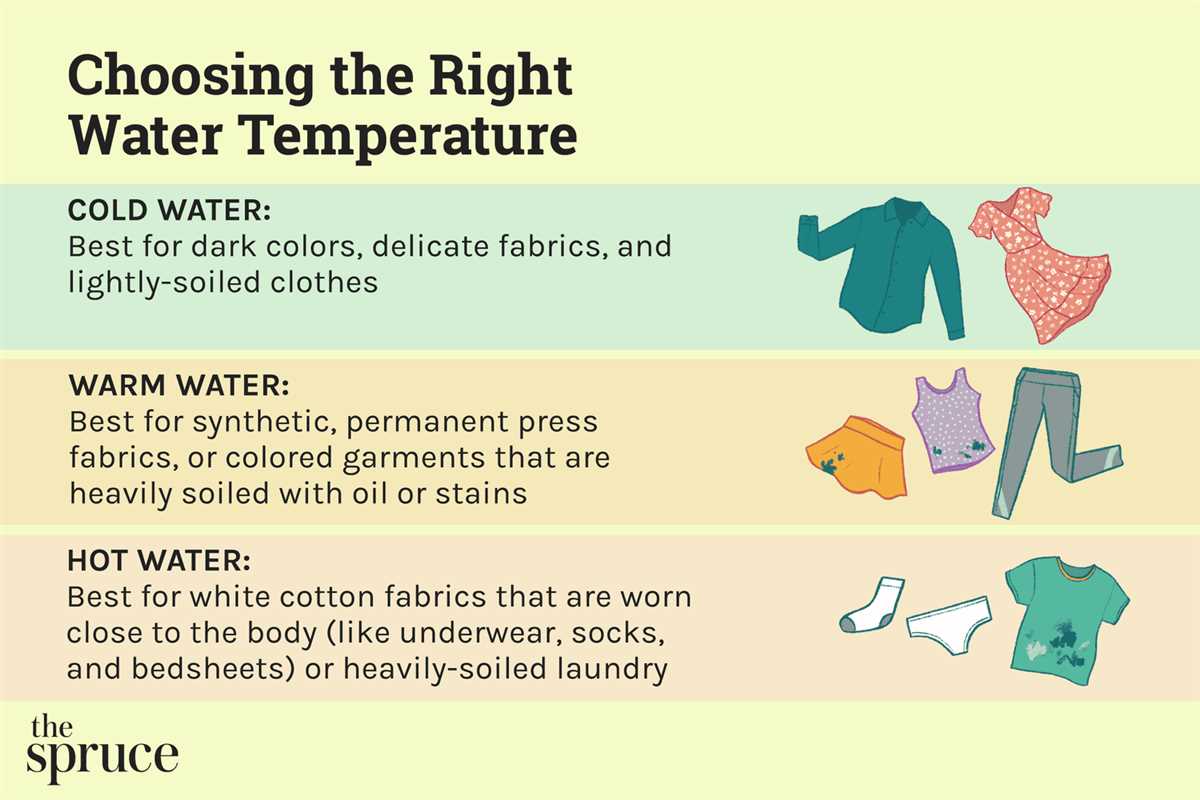
Hot water is the best option for heavily soiled towels, as it helps to remove tough stains and kill bacteria effectively. This temperature setting is suitable for white towels and colorfast towels.
Warm Water (90°F/32°C to 110°F/43°C)
Warm water is ideal for regular towel loads and colored towels. It helps to clean the towels effectively while still being gentle on the fabric. Warm water also reduces the risk of shrinking or fading colors.
Cold Water (60°F/15°C to 80°F/27°C)
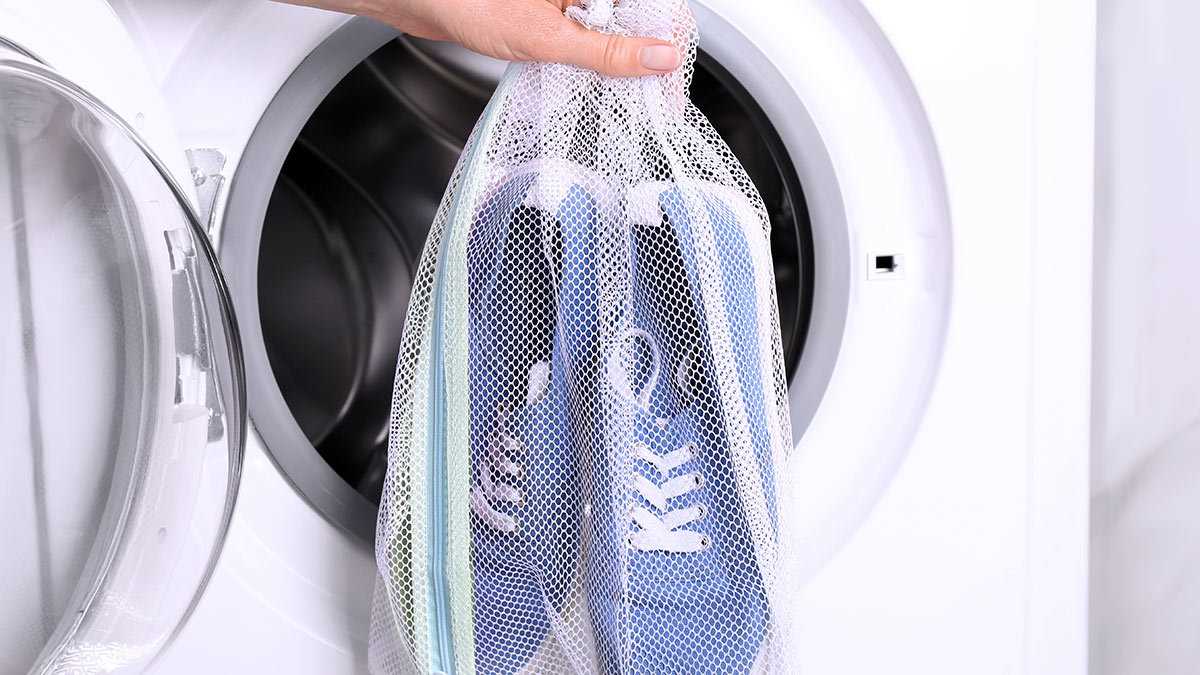
If you’re washing delicate towels or want to save energy, cold water is the way to go. Cold water helps preserve the quality of the fabric and prevents colors from bleeding or fading. However, keep in mind that cold water may not be as effective in removing tough stains.
Note: Always refer to the care label on your towels for the recommended temperature settings. Some towels may have specific instructions that override the general recommendations mentioned here.
It’s also important to mention that modern washing machines have different temperature options, so make sure to select the appropriate setting based on your machine’s features. Experimenting with different temperature settings can help you determine the best temperature for your towels based on their specific needs.
Using the Right Amount of Detergent
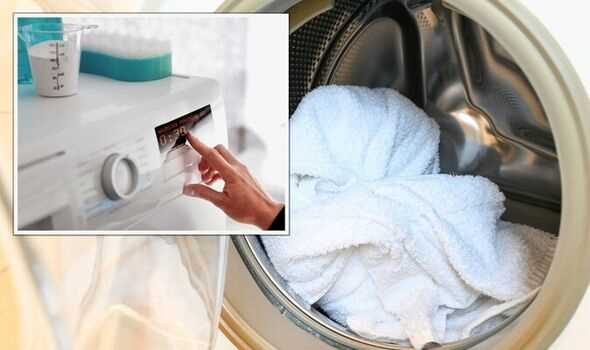
When washing towels, it is important to use the right amount of detergent to ensure that they come out clean and fresh. Using too much detergent can leave residue on your towels, while using too little can result in them not being thoroughly cleaned. Here are some guidelines to help you determine the right amount of detergent to use:
- Read the manufacturer’s instructions: Start by checking the label on your detergent to see if there are any specific instructions for washing towels. Different brands may recommend different amounts of detergent.
- Weigh your towels: To get a precise measurement, weigh your towels before adding them to the washing machine. This will help you determine the appropriate amount of detergent based on the weight of your load.
- Follow the dosage guidelines: Most detergents will have dosage guidelines on their packaging. Use these guidelines as a starting point for determining how much detergent to use.
- Adjust based on water hardness: If you live in an area with hard water, you may need to use slightly more detergent to compensate for the mineral content in the water. On the other hand, if you have soft water, you may be able to use less detergent.
- Avoid using too much: While it may be tempting to add extra detergent for heavily soiled towels, this can actually lead to soap residue being left behind. Stick to the recommended amount and pre-treat any stains or heavily soiled areas before washing.
Remember to always read the instructions on your detergent and adjust accordingly based on the size of your load, water hardness, and level of soiling. By using the right amount of detergent, your towels will come out clean, fresh, and ready for use.
Drying Options
After your towels have finished washing, you have a few options for drying them. The method you choose will depend on your personal preference and the features available on your washing machine and dryer.
Air Drying
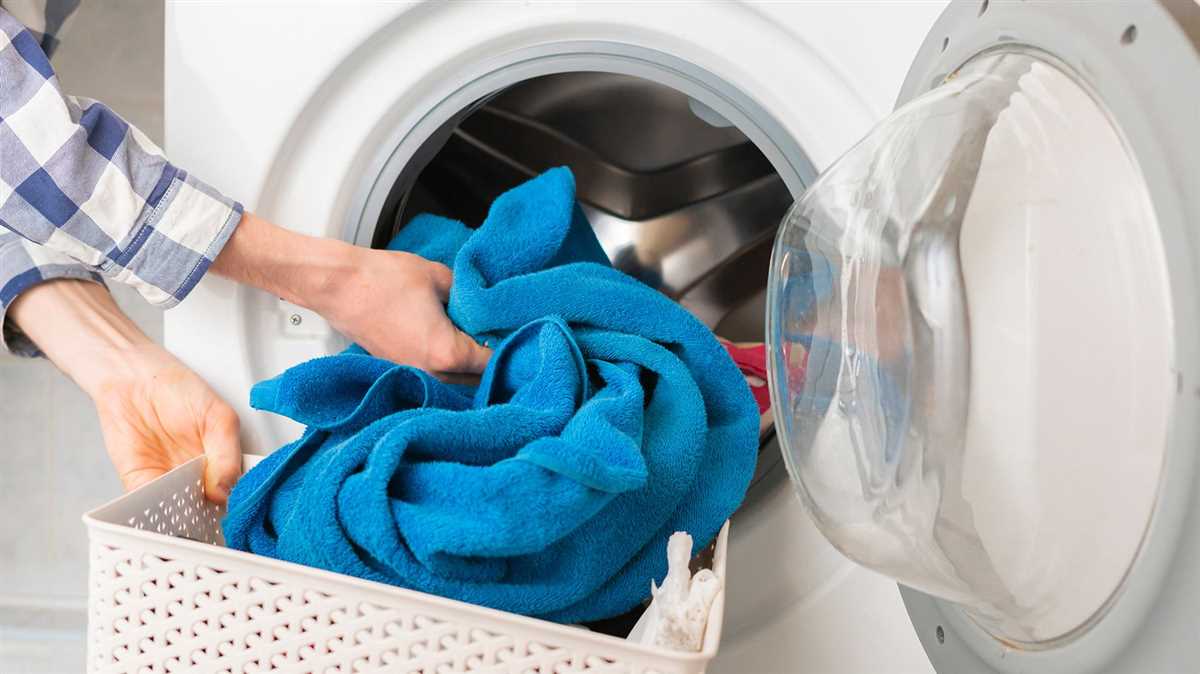
Air drying is the most gentle option for drying your towels. Simply hang them outside on a clothesline or indoor on a drying rack. This method helps to preserve the softness and absorbency of the towels. However, air drying takes longer than other methods and may not be suitable if you need your towels dried quickly.
Machine Drying
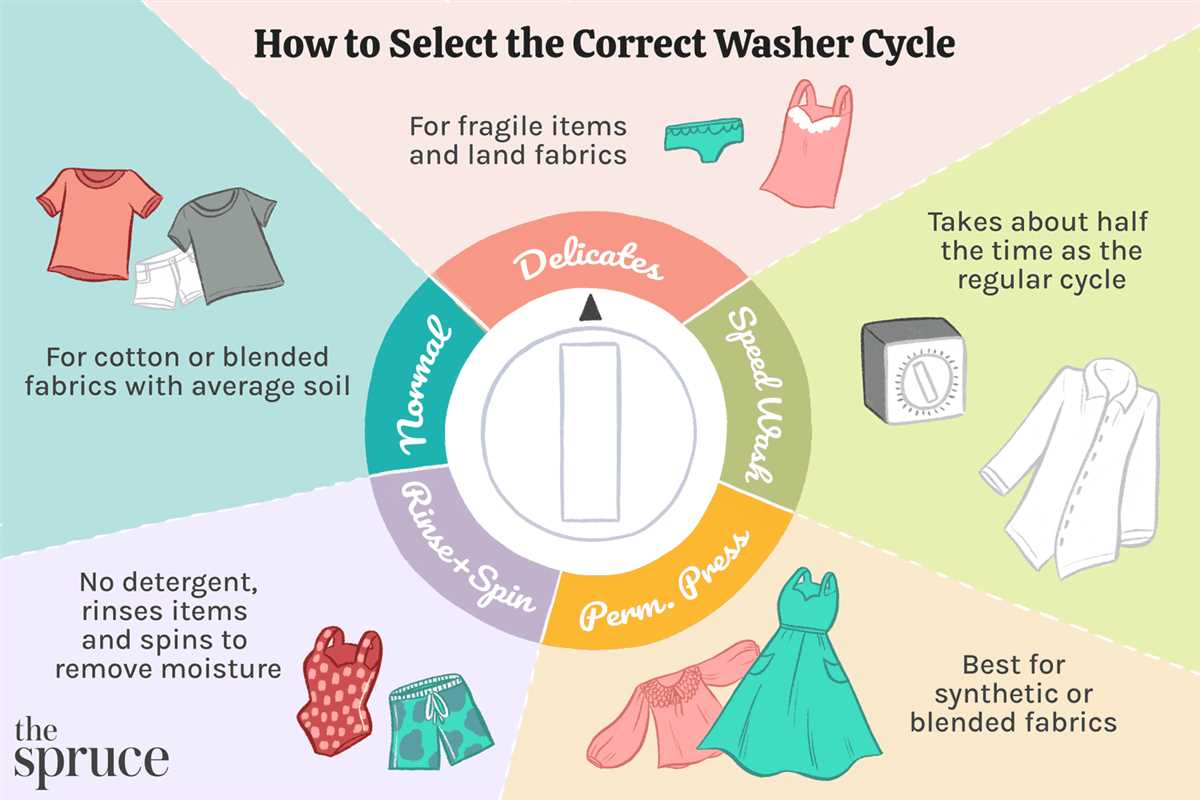
If you prefer the convenience of machine drying, you can use your dryer to dry your towels. Here are a few tips to keep in mind:
- Sort your towels by size and fabric type before putting them in the dryer.
- Shake out the towels before loading them to help prevent them from tangling.
- Avoid overloading the dryer, as this can prevent the towels from drying thoroughly.
- Choose the appropriate drying setting for your towels, such as low or medium heat.
- Consider using dryer balls or clean tennis balls to help fluff and soften your towels.
Remember to always check the care instructions on your towels for any specific drying recommendations.
Other Considerations
In addition to choosing a drying method, there are a few other factors to consider when drying your towels:
- Avoid using fabric softeners, as they can reduce the absorbency of the towels.
- Remove the towels from the dryer as soon as they are dry to prevent wrinkling.
- If necessary, you can iron your towels on a low heat setting to remove any wrinkles.
By following these drying options and considerations, you can keep your towels fresh, soft, and ready for use.
Tips for Maintaining Towels
- Wash Towels Separately: It is a good practice to wash your towels separately from other items. This will prevent lint from transferring to your towels and help them maintain their absorbency.
- Use the Right Amount of Detergent: Too much detergent can leave a residue on towels, making them less absorbent. Use the recommended amount of detergent for your load size.
- Avoid Fabric Softeners: Fabric softeners can coat the fibers of towels, making them less absorbent over time. It is best to skip fabric softeners altogether when washing towels.
- Don’t Overload the Washing Machine: Overloading the washing machine can prevent the towels from getting clean and can cause them to come out of the wash with a musty smell. Make sure to leave enough space for the towels to move around freely.
- Wash Towels in Warm Water: Washing towels in warm water helps to remove dirt and bacteria effectively. Avoid washing them in hot water as it can weaken the fibers.
- Use White Vinegar: Adding a cup of white vinegar to the rinse cycle can help remove any soap residue and keep towels soft and fluffy.
- Avoid Bleach: Bleach can weaken the fibers of towels and cause them to deteriorate faster. Instead, use an oxygenated bleach or a non-chlorine bleach for any tough stains.
- Hang Towels to Dry: Hanging towels to dry after washing helps them retain their softness and prevents them from developing a musty smell. Avoid using a dryer as it can damage the fibers and make the towels lose their absorbency.
- Replace Old Towels: Over time, towels can become worn out and less absorbent. It is important to regularly assess the condition of your towels and replace them when necessary.
- Store Towels Properly: When not in use, make sure to store towels in a well-ventilated area. Avoid folding them immediately after use to allow them to dry completely.
FAQ
What is the best washing machine setting for washing towels?
The best washing machine setting for washing towels is usually the heavy-duty or towel setting. This setting provides more agitation and a longer wash cycle, which helps to remove dirt, grime, and residue from the towels.
Can I wash towels on the delicate setting?
While you can wash towels on the delicate setting, it is not recommended. The delicate setting typically has a gentler wash action and shorter cycle, which may not effectively clean the towels. It is best to use a setting specifically designed for towels or a heavy-duty setting.
Should I use hot or cold water to wash towels?
It is generally recommended to use warm or hot water when washing towels. Hot water helps to kill bacteria and remove oils and residues from the towels. However, make sure to check the care instructions on the towel label to ensure you are using the appropriate water temperature.
Can I wash towels with other clothes?
It is generally safe to wash towels with other clothes, as long as you consider a few factors. Make sure to separate towels from delicate items that may snag on the towel loops. Additionally, avoid washing towels with clothing items that may transfer lint or color onto the towels. It is also important to not overload the washing machine to allow for proper agitation and cleaning.
How often should I wash my towels?
It is recommended to wash towels every three to four uses, or about once a week. Towels can quickly accumulate dirt, oils, and bacteria, so regular washing is important to maintain their cleanliness and freshness. If towels are used more frequently, or for activities like swimming or exercising, they may need to be washed more often.











